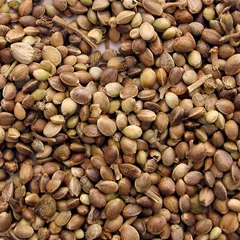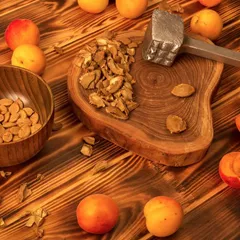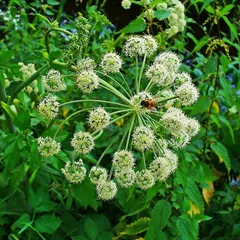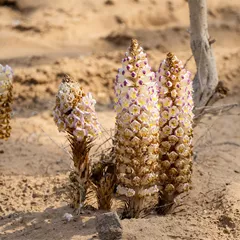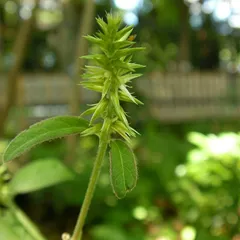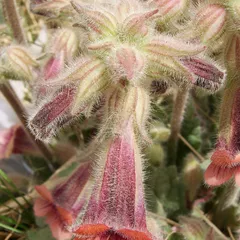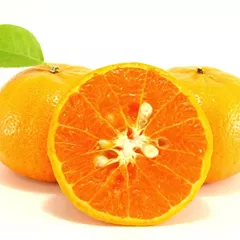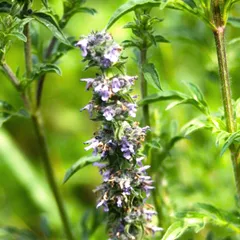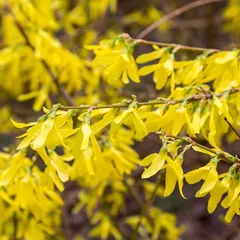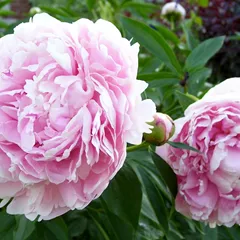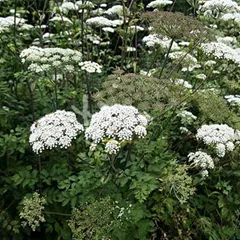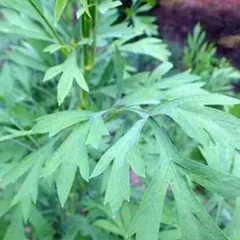Huai Jiao Wan
Huai Jiao Wan
Chinese: 槐角丸
Pinyin: Huái Jiǎo Wán
Other names: Sophora Japonicae Fruit Pill, Pagoda three pods Pill,
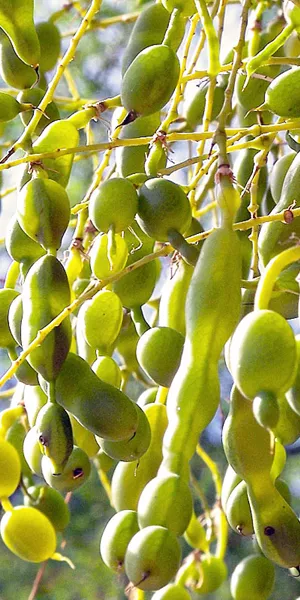
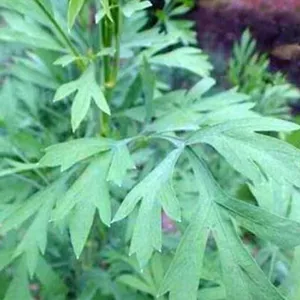
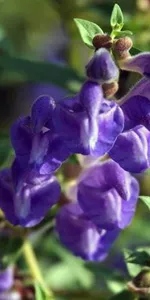
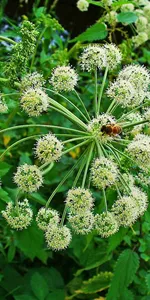
Huai Jiao Wan
Huai Jiao Wan
Chinese: 槐角丸
Pinyin: Huái Jiǎo Wán
Other names: Sophora Japonicae Fruit Pill, Pagoda three pods Pill,
Number of ingredients: 6 herbs
Formula category: Formulas that stop bleeding
Conditions for which it may be prescribed: HemorrhoidsRectal prolapseHeavy menstruation and one other condition
- Clears heat from the Intestines
- Stops bleeding
- Disperses wind
- Regulates Qi
Source date: 1107 AD
Source book: Formulary of the Pharmacy Service for Benefiting the People in the Taiping Era
The information provided here is not a replacement for a doctor. You shouldn't use it for the purpose of self-diagnosing or self-medicating but rather so you can have a more informed discussion with a professional TCM practitioner.
Huai Jiao Wan is a 6-ingredient Chinese Medicine formula with Pagoda Tree Pods (Huai jiao) as a principal ingredient.
Invented in 1107 AD, it belongs to the category of formulas that stop bleeding. Its main actions are: 1) clears heat from the Intestines and 2) stops bleeding.
In Chinese Medicine health conditions are thought to arise due to "disharmonies" in the body as a system. These disharmonies are called "patterns" and the very purpose of herbal formulas is to fight them in order to restore the body's harmony.
In this case Huai Jiao Wan is used by TCM practitioners to fight patterns like Heat in Uterus Blood. From a Western Medicine standpoint, such patterns can give rise to a range of conditions such as heavy menstruation, hemorrhoids or bleeding hemorrhoids for instance.
On this page, after a detailed description of each of the six ingredients in Huai Jiao Wan, we review the patterns and conditions that Huai Jiao Wan helps treat.
The six ingredients in Huai Jiao Wan
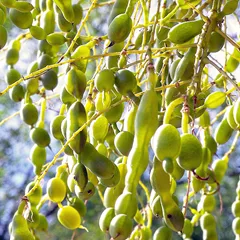
Huai jiao is a king ingredient in Huai Jiao Wan. Like the name indicates, it means it has more power than other ingredients in the formula.
1. Pagoda Tree Pods (Huai jiao)
Part used: The dried ripe fruits
Nature: Cold
Taste(s): Bitter
Meridian affinity: GallbladderLarge intestineLiver
Category: Herbs that stop bleeding
Huai jiao clears Damp Heat from the Intestines, drains Heat and clears the Intestines, cools the Blood, and also stops bleeding.
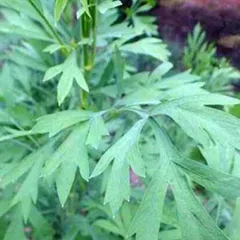
Fang Feng is an assistant ingredient in Huai Jiao Wan. This means that it either serves to reinforces the effect of other ingredients or it moderates their toxicity.
2. Saposhnikovia Roots (Fang Feng)
Fang Feng promotes the Qi movement and thus calms the Intestines. It focuses on the Intestines and enters the Blood level to move Qi.
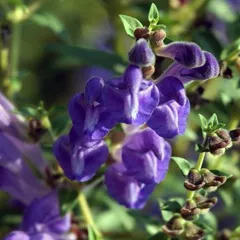
3. Baikal Skullcap Roots (Huang Qin)
Part used: Dried root
Nature: Cold
Taste(s): Bitter
Meridian affinity: GallbladderHeartLarge intestineLungSmall intestineSpleen
Category: Herbs that clear Heat and dry Dampness
In general Huang Qin's main actions are as follows: "Expels Heat and Dampness. Clears Upper Burner Heat, especially of the Lung. Clears Heat and stops reckless movement of Blood. Clears pathogenic Heat which is upsetting the fetus. Cools the Liver, reducing Liver Yang rising syndrome."
In the context of Huai Jiao Wan, it is used because it clears Heat and drains Fire. It prevent the Yang from rising in the Liver Channel.

4. Dong Quai (Dang Gui)
Part used: Dried root
Nature: Warm
Meridian affinity: HeartLiverSpleen
Category: Tonic herbs for Blood Deficiency
In general Dang Gui's main actions are as follows: "Tonifies the Blood. Lubricates the Intestines. Relieve constipation. Promotes circulation and dispels Bi Pain. Reduce Dysmenorrhea and help with irregular menstruation."
In the context of Huai Jiao Wan, it is used because it stops chronic bleeding that is caused by Qi and Blood Deficiency.
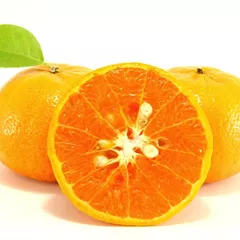
5. Bitter Oranges (Zhi Ke)
Part used: Dried ripe fruit
Nature: Warm
Meridian affinity: SpleenStomach
Category: Herbs that regulate Qi
In general Zhi Ke's main actions are as follows: "To regulate the flow of Qi, remove its stagnation, and alleviate distension."
In the context of Huai Jiao Wan, it is used because it promotes the movement of Qi and thereby relaxes the Intestines.
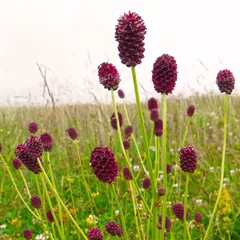
6. Sanguisorba Roots (Di yu)
Part used: The dried root
Nature: Cool
Meridian affinity: StomachLarge intestineLiver
Category: Herbs that stop bleeding
In general Di yu's main actions are as follows: "Reduces Heat in the Blood, drains Damp-Heat and stops bleeding. Stops diarrhea. Applied topically it reduces inflammation and aids in wound healing."
In the context of Huai Jiao Wan, it is used because it treats chronic or profuse rectal bleeding.
Huai Jiao Wan is used to treat Heat in Uterus Blood
It's important to remember that herbal formulas are meant to treat patterns, not "diseases" as understood in Western Medicine. According to Chinese Medicine patterns, which are disruptions to the body as a system, are the underlying root cause for diseases and conditions.
As such Huai Jiao Wan is mostly used to treat the pattern "Heat in Uterus Blood" which we describe below.
But before we delve into Heat in Uterus Blood here is an overview of the Western conditions it is commonly associated with:
Heavy menstruation Hemorrhoids Bleeding hemorrhoids Rectal prolapse
Again it wouldn't be correct to say "Huai Jiao Wan treats heavy menstruation" for instance. Rather, Huai Jiao Wan is used to treat Heat in Uterus Blood, which is sometimes the root cause behind heavy menstruation.
Now let's look at Heat in Uterus Blood, a pattern that TCM practitioners commonly treat with Huai Jiao Wan.
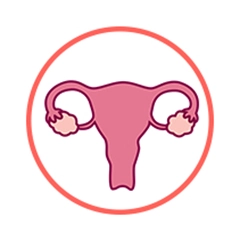
The Uterus is a so-called "Extraordinary" Organ. Learn more about the Uterus in Chinese Medicine
Heat in Uterus Blood
Pulse type(s): Rapid (Shu), Wiry (Xian)
Symptoms: Anger Thirst Anxiety Red face Headaches Dark Urine Constipation Restlessness Heavy periods Feeling of heat Dark colored blood Flooding and leaking Thick menstrual blood Sticky menstrual blood Flooding suddenly before schedule
Huai Jiao Wan is sometimes prescribed by TCM practitioners to treat Heat in Uterus Blood. This pattern leads to symptoms such as heavy periods, flooding suddenly before schedule, flooding and leaking and dark colored blood. Patients with Heat in Uterus Blood typically exhibit rapid (Shu) or wiry (Xian) pulses.
Long term emotional stress such as anger, frustration and resentment, or a sudden emotional upset can lead to Liver Qi Stagnation. If untreated for a while, it can then develops to Liver Fire or Heat, which agitates the Blood, As a result an excessive amount of Blood leaks out of vessels. If the read more about Heat in Uterus Blood
Formulas similar to Huai Jiao Wan
Run Chang Wan is 33% similar to Huai Jiao Wan
Ji Chuan Jian is 33% similar to Huai Jiao Wan
Dang Gui Liu Huang Tang is 29% similar to Huai Jiao Wan
Zhu Yu Zhi Xue Tang is 25% similar to Huai Jiao Wan
Jing Jie Lian Qiao Tang is 25% similar to Huai Jiao Wan
Juan Bi Tang is 22% similar to Huai Jiao Wan

